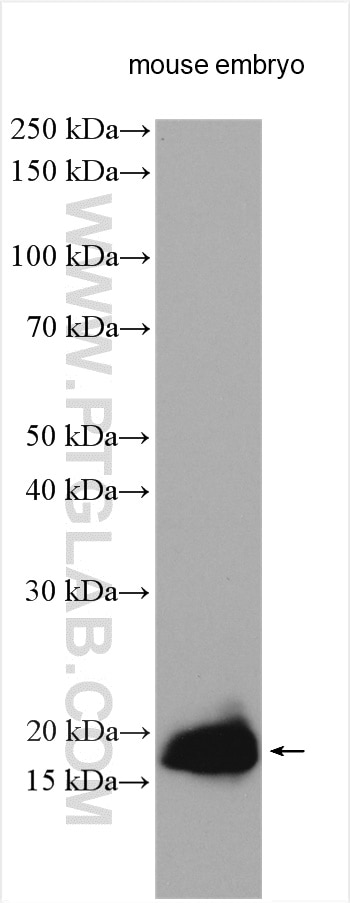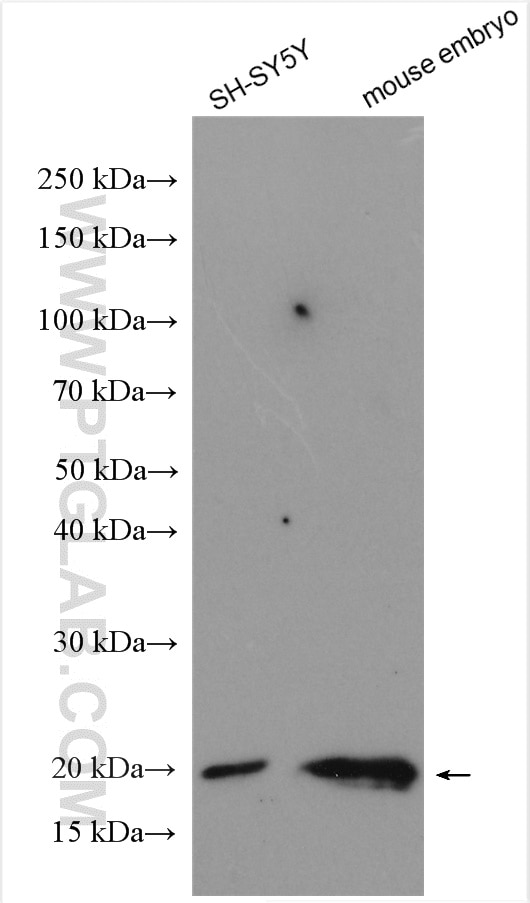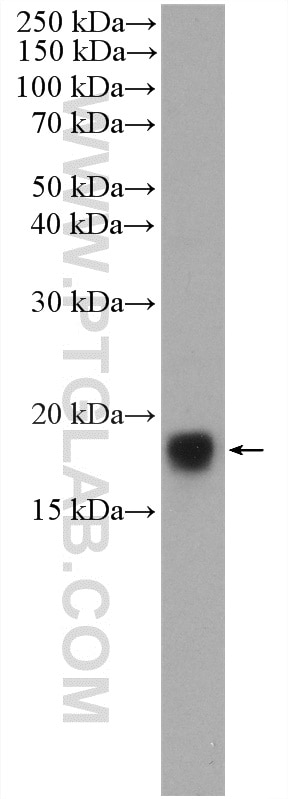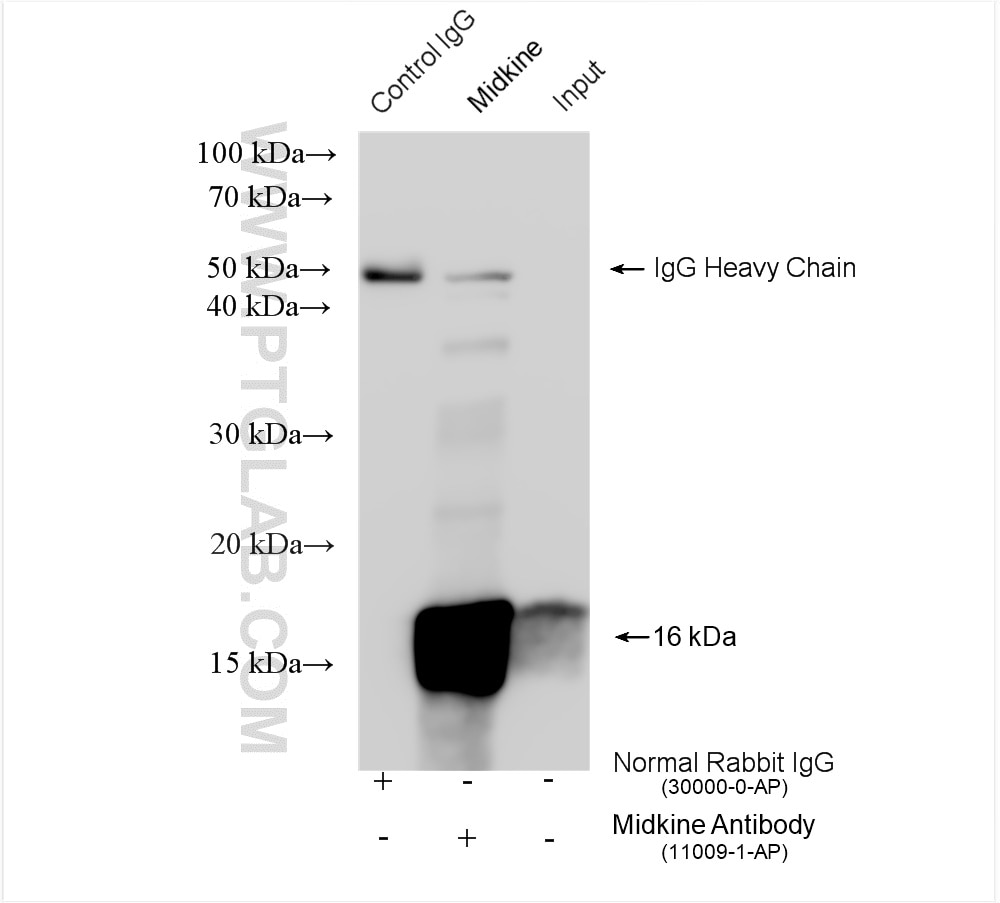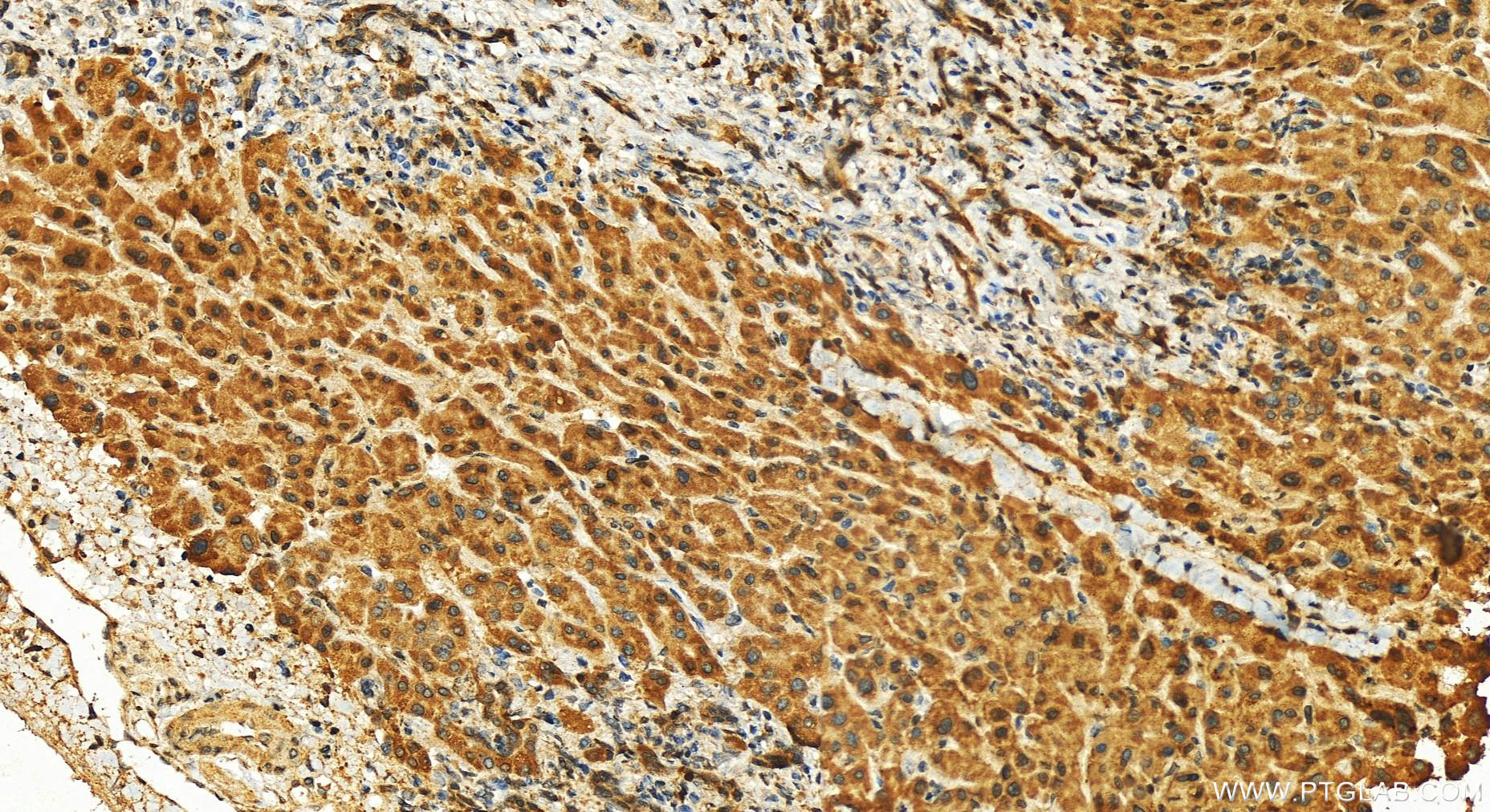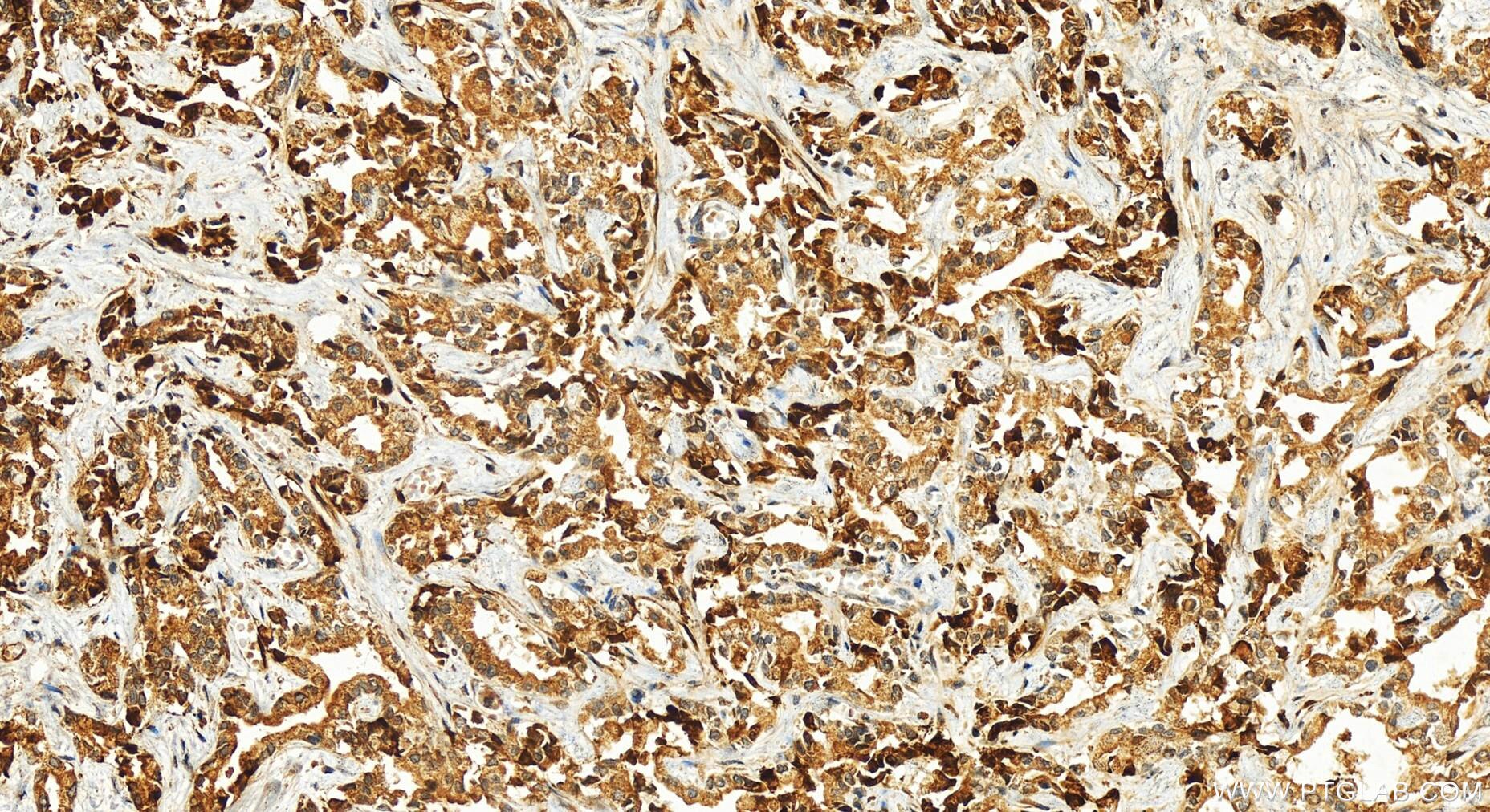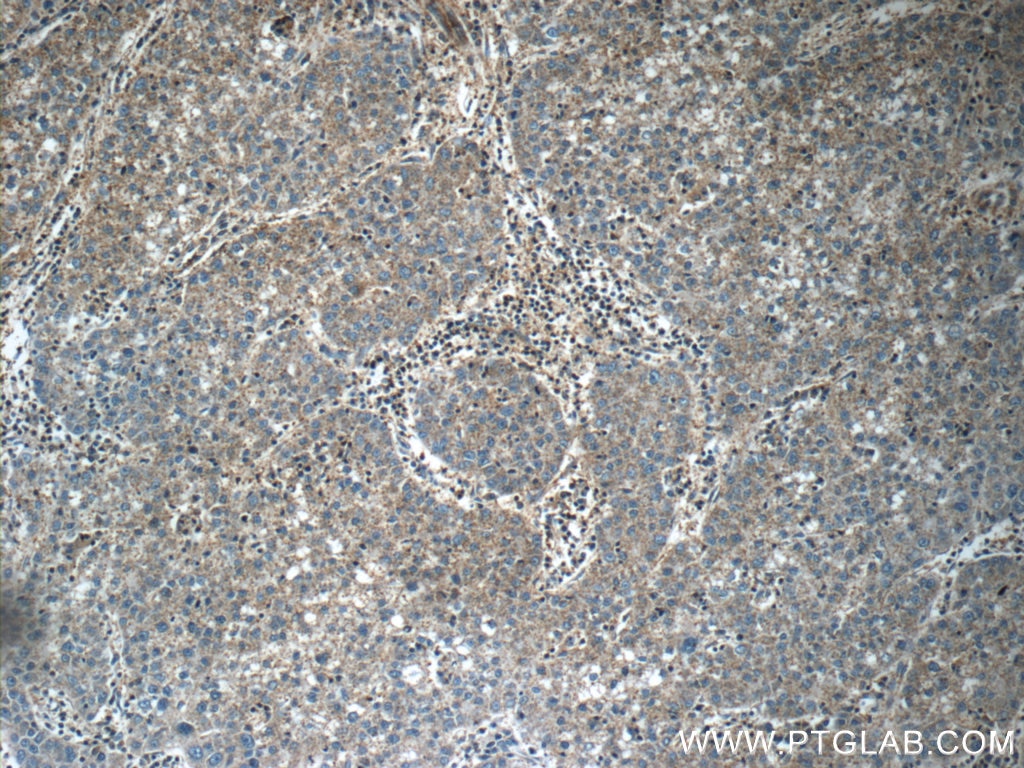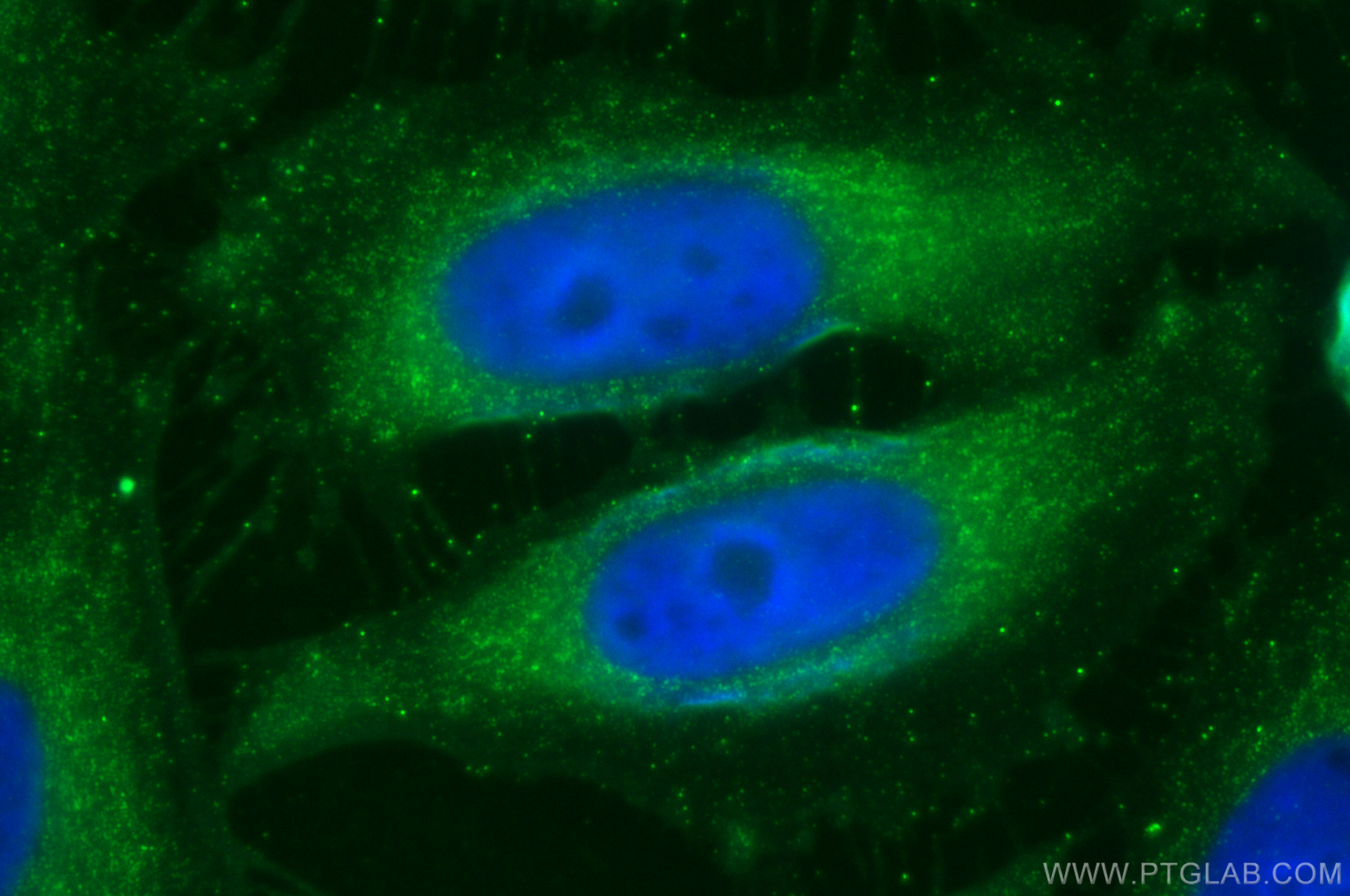Validation Data Gallery
Tested Applications
| Positive WB detected in | mouse embryo tissue, COLO 320 cells, SH-SY5Y cells |
| Positive IP detected in | mouse embryo tissue |
| Positive IHC detected in | human intrahepatic cholangiocarcinoma tissue, human liver cancer tissue Note: suggested antigen retrieval with TE buffer pH 9.0; (*) Alternatively, antigen retrieval may be performed with citrate buffer pH 6.0 |
| Positive IF/ICC detected in | HeLa cells |
Recommended dilution
| Application | Dilution |
|---|---|
| Western Blot (WB) | WB : 1:500-1:1000 |
| Immunoprecipitation (IP) | IP : 0.5-4.0 ug for 1.0-3.0 mg of total protein lysate |
| Immunohistochemistry (IHC) | IHC : 1:50-1:500 |
| Immunofluorescence (IF)/ICC | IF/ICC : 1:50-1:500 |
| It is recommended that this reagent should be titrated in each testing system to obtain optimal results. | |
| Sample-dependent, Check data in validation data gallery. | |
Published Applications
| KD/KO | See 3 publications below |
| WB | See 8 publications below |
| IHC | See 2 publications below |
| IF | See 5 publications below |
Product Information
11009-1-AP targets Midkine in WB, IHC, IF/ICC, IP, ELISA applications and shows reactivity with human, mouse samples.
| Tested Reactivity | human, mouse |
| Cited Reactivity | human, mouse, rat |
| Host / Isotype | Rabbit / IgG |
| Class | Polyclonal |
| Type | Antibody |
| Immunogen | Midkine fusion protein Ag1465 相同性解析による交差性が予測される生物種 |
| Full Name | midkine (neurite growth-promoting factor 2) |
| Calculated molecular weight | 16 kDa |
| Observed molecular weight | 16 kDa |
| GenBank accession number | BC011704 |
| Gene Symbol | Midkine |
| Gene ID (NCBI) | 4192 |
| RRID | AB_2250619 |
| Conjugate | Unconjugated |
| Form | Liquid |
| Purification Method | Antigen affinity purification |
| UNIPROT ID | P21741 |
| Storage Buffer | PBS with 0.02% sodium azide and 50% glycerol{{ptg:BufferTemp}}7.3 |
| Storage Conditions | Store at -20°C. Stable for one year after shipment. Aliquoting is unnecessary for -20oC storage. |
Background Information
Midkine is a heparin-binding growth factor identified over 20 years ago and enhances the survival, migration and many other activities of target cells. Midkine is rich in both basic amino acids and cysteine, and is not related to most other growth factors/cytokines. It is strongly expressed during embryonic periods, especially at the midgestation stage, and plays important roles in development, especially in neurogenesis. Midkine expression in adult tissue is generally weak or undetectable, and it is induced upon injury and exerts many activities related to tissue repair. The biological activities of midkine in malignant tumors include proliferation, angiogenesis, invasion and metastasis. Various cancers express significantly higher levels of the midkine protein in early stage tumor tissues than in adjacent normal tissue.
Protocols
| Product Specific Protocols | |
|---|---|
| WB protocol for Midkine antibody 11009-1-AP | Download protocol |
| IHC protocol for Midkine antibody 11009-1-AP | Download protocol |
| IF protocol for Midkine antibody 11009-1-AP | Download protocol |
| IP protocol for Midkine antibody 11009-1-AP | Download protocol |
| Standard Protocols | |
|---|---|
| Click here to view our Standard Protocols |
Publications
| Species | Application | Title |
|---|---|---|
Front Immunol Roles of the m6A Modification of RNA in the Glioblastoma Microenvironment as Revealed by Single-Cell Analyses.
| ||
Front Oncol Targeting MDK Abrogates IFN-γ-Elicited Metastasis inCancers of Various Origins. | ||
Cancer Cell Int Midkine promotes glioblastoma progression via PI3K-Akt signaling.
| ||
Am J Respir Cell Mol Biol Mesenchymal Glucocorticoid Receptor Regulates Development of Multiple Cell Layers of the Mouse Lung. | ||
J Mol Neurosci Electroacupuncture Alleviated Neuronal Apoptosis Following Ischemic Stroke in Rats via Midkine and ERK/JNK/p38 Signaling Pathway. |
